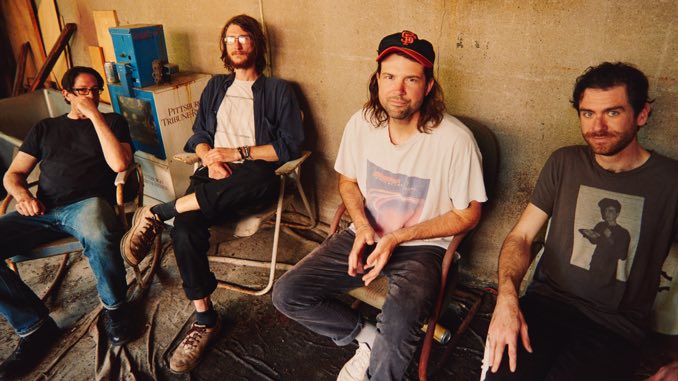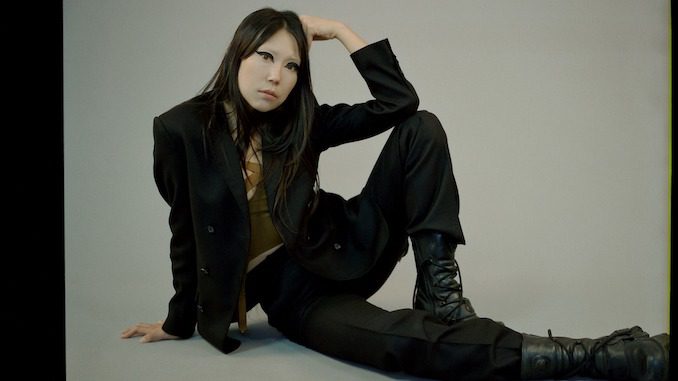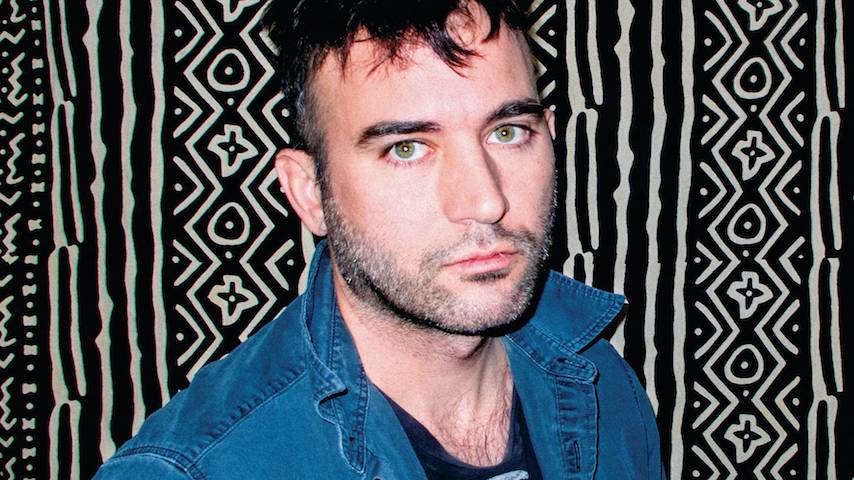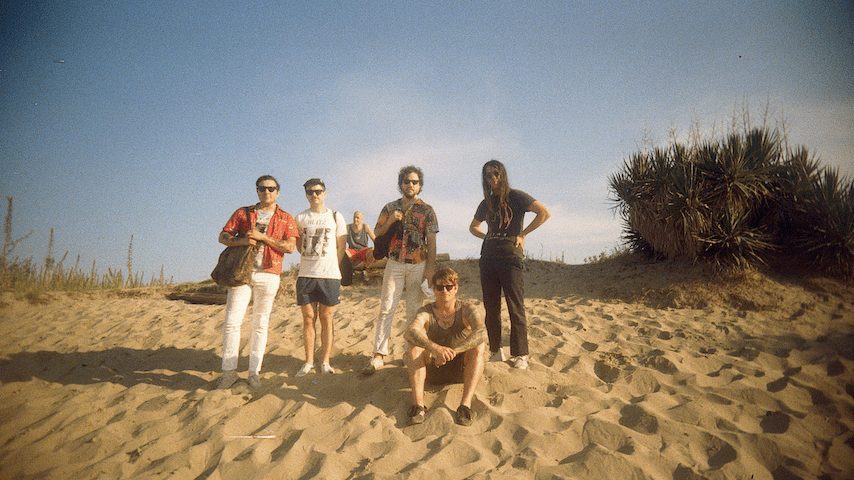In recent memory, few bands have grown from album to album as much as Wild Pink. From a debut that felt at home with its emo labelmates, to a glorious heartland rock record and a record that bridged the two, they’ve tried to do so much, and succeeded. The band, led by John Ross, is one that feels of the people, rooted in real life, and easily related to. Ross sings about life honestly, never shying away from the less glamorous aspects. Mentioning movies like Temple of Doom or restaurants like Guy’s American Kitchen might be considered passé by their peers, but it’s part of what makes their pull so strong.
Wild Pink is one of those bands where, if you love them, you are all in. You’re onboard for the variety in their sound. You’re sold on Ross’ songwriting, whether it’s witty or devastating, though it can often be both in the same breath. If you’re not in this camp, you probably don’t care about them. Maybe you’ve enjoyed a song or two, but you don’t think about them.
Last week, Wild Pink released their fourth studio album, ILYSM. The record was written in the aftermath of Ross’ battle with cancer, and sees them holding on tight to the ambition of A Billion Little Lights, but veering in many new directions. From Tom Petty-inspired rock songs to piano-flecked ballads, ILYSM is a record that refuses to be boxed in, a record as varied as the band itself. If you’re reading this, and you’re one of the people who doesn’t care about Wild Pink, use this as a guide to the highlights. If you’re one of the diehards, get mad I missed your favorites. Now that ILYSM is out in the world, let’s look back at the best songs from their career so far.
10. “Simple Glyphs”
Found in the second half of Wild Pink’s new album ILYSM, the raucous and free-spirited “Simple Glyphs” is a torch song for a wild youth rife with drug buys and internal revelations. With an assist from Ryley Walker, who provides warm, unpredictable washes of slide guitar, it’s one of the most enrapturing songs the band’s ever released, and an obvious showcase of how much growth they’ve undergone in every regard. It’s one of the most uptempo rock songs they’ve written to date and has been the one to kick off every night of their current tour, for good reason. It’s also home to one of the record’s most resonant closing lines, one that hits on the randomness inherent in life: “I’m not supposed to be here / I’m just showing up every day like Cal Ripken Jr.”
9. “Wizard of Loneliness”
Before they were the luminous heartland rock band we know today, Wild Pink was a band on Tiny Engines, releasing music that veered closer to the emo-tinged slowcore of labelmates Paear or Jouska. While it’s tempting to view their debut as a smaller-scale project when compared to later works, 2017’s Wild Pink is still home to some incredible music. “Wizard of Loneliness,” its title a Nathan For You reference, is half skittering rock song, and half reminder to take a deep breath and become more tuned in to life around you. It’s just as thoughtful as it is catchy. It’s a Wild Pink song that feels built to play on college radio or at a house show, after midnight in either case. Before they wrote “Wizard of Loneliness,” they’d done nothing like it. They haven’t since, either.
8. “Cahooting The Multiverse”
“Cahooting The Multiverse” is a title only Wild Pink could have come up with, and even more so, a song only they could have written. Opening with affected vocals, Ross paints a scene of a night spent on a walk, ruminating on something troubling him. Silence falls before a wave of steel guitar rings out, taking the burden of furthering the song off Ross, if only briefly. The sprawling “Multiverse” is a song rich with nostalgia. Ross looks back on his life, stumbling through visions of collegiate antics and “dreaming dreams so sweet they’re cruel.” For a writer who so frequently refers to film, it’s notable that here we see Ross compare a moment of commiseration with a friend to a Terrence Malick film. The meditative tones of Mallick’s work are mirrored here in the song’s sleek, patient movement. “Cahooting The Multiverse” is at times calming, unsettling, glitchy, visceral and divine. It’s the perfect way to open a record like ILYSM.
7. “Pacific City”
Wild Pink kicks off “Pacific City” with a night spent away from home, watching movies on TV. While viewing Michael Mann’s Heat, Ross remarks that he “hates when the robbers die.” Just a few lines later, he’s being moved to tears by a commercial. “Pacific City” puts the focus on the ways we realize that we’re in a bad state, and how often we come to this realization by examining how we react to the media we consume. Over a lively band full of upbeat drums and a pedal steel singing loudly about the rest, the track acknowledges we just “need a little room.” Give yourself a break.
6. “Die Outside”
“Swat the smoke from your face,” Ross advises at the top of “Die Outside.” It’s a message to push beyond the allure of wallowing when confronted with grief, and call to look past it. The ending of A Billion Little Lights, “Die Outside” is an at once devastating and hopeful exhale, filled with nods to the last stages of life for everything. From fruits ripening and crumbling to dust, to humanity becoming one with the earth, death is talked about not from a place of morbidity, but from one of respect. The song chugs along in its verses, decidedly unshowy in its arrangement, making every line resonate immediately. Its chorus is lush and open; the way Ross sings, “Let every wall come down / with all the honey in a rolling boil,” has such a freeing amount of resonance to that it feels more and more like guided meditation with each repetition.
5. “Albert Ross”
The highlight of the band’s self-titled record, “Albert Ross” exemplifies their homespun, slowcore-adjacent beginnings. Though Ross obscures the song’s exact subject, he gives a rough sketch of a relationship in turmoil and losing that person. Ross’ delivery is stoic, never leaning into the raw power he’d eventually tap into on subsequent records. It’s the musical equivalent of putting on a brave face when confronted with something that should bowl you over. Simple, scrappy guitar sways alongside the song’s heartbreaking refrain: “A flowerbed gave away your hiding space.” It’s the first in what would become a long line of powerful, emotionally real portrayals of what loss can look like.
4. “Family Friends”
For as much as Wild Pink’s members are gifted musicians who craft rock music so sweeping and bright that it feels otherworldly, their songs are always tightly tethered to earth by their lyrics. Wry, observational and always hyper-specific, Ross’ writing does well to contextualize his music. It’s part of what makes it unique. A Billion Little Lights cut “Family Friends” may be the only time the ropes are loosened, and the words match the music’s ethereality. “Lights spin around / Like stars that fall down / Come back home / Dream all night,” sing Ross and Julia Steiner (Ratboys), their voices unified, directa and teeming with emotion. The music swells around them. You can practically envision their faces illuminated by the rapid twirling light of the disco ball mentioned earlier. The result is an evocative, moving piece of pure magic.
3. “Lake Erie”
Wild Pink dedicated their second album, Yolk in the Fur, to Tom Petty. Listening to a masterpiece like “Lake Erie” makes it obvious why they did. The album’s lead single, it’s a knowing and loving homage to the kind of country, blues and rock music that Petty was known for melding together. Perhaps the most straightforward rock song in the band’s discography, “Lake Erie” is perfectly executed. Propulsive, catchy and emboldened by the band’s love of its source material, it hits as hard as anything Petty ever did, while sacrificing none of the descriptive prose that Ross brings to the band. The breakdown in the song’s middle is one of the rare moments that a Wild Pink song has the chance to fall into an extended jam session. If they wanted to do this more often, there’d be no complaints here.
2. “The Shining But Tropical”
“You want peace, you want love / You deserve that much.” This line is the empathetic core of “The Shining But Tropical,” A Billion Little Lights’ centerpiece. Though its title refers to a stifling retirement home in Florida, the song is Wild Pink at the height of their grandeur. In its first verse, Ross paints a vivid picture of the Pacific Ocean as seen from the San Francisco Bay, zooming in and out of its vastness, acknowledging every living thing, huge or microscopic, in this ever-expanding frame. It’s such a potent image when sung that it’s hard to envision music that can encompass that same size, and yet the instrumentation of “The Shining but Tropical” may go even further. Steel guitars and lively drums join Ross’ vocals to create a radiant haze. “The Shining But Tropical” is easily the most anthemic song in the band’s catalog, and its power is only amplified by how gorgeous the underlying instrumentation is.
1. “See You Better Now” / “Sucking on the Birdshot”
I know what you’re thinking: “Why are there two songs at number one? Isn’t that a cop-out?” Usually, you’d be right. While ILYSM’s “See You Better Now” and “Sucking on the Birdshot” are two songs, they’re not separate. The two bleed into each other in a way that, when played on their own, handicaps them. The combination of them is overpowering. “See You Better Now” is a dose of sweet, optimistic indie rock with a melodic pop heart. Ross sings fondly of someone he knew in youth, admiring the wonders of their mind: ”Making up whole worlds / From the misheard words / Of songs you loved / But never bothered to learn.” Now, in hindsight, he better understands them as a person, and harnesses that unbridled joy and warmth. It’s a song beaming with sunlight and heartland rock, endlessly catchy even in its verses. It would be an all-timer for Wild Pink even without the momentous turn.
As “See You Better Now” edges towards the four-minute mark, the swelling guitar contributed by J Mascis hits a crescendo, and “Sucking on the Birdshot” begins. The guitar becomes jagged, ambient fuzz fills the corners, and Wild Pink is at its heaviest. A song about a wave of devastation brought on by seeing a sandhill crane mourn the loss of its mate channels that feeling of overpowering grief just as much in the gales of its instrumentation as it does in its lyrics—just an unapologetic scream of a guitar, letting everything out. Then, the noise recedes, pounding drums and somber keys flanking Ross as he recounts a tale of a loss of his own. After a few more minutes of this, the band flares up again, and a wall of loud, sludgy guitars crashes into you one more time.
The power here isn’t just in the seamless transition. John Ross has long been a master of depicting emotion in songs realistically. People are rarely purely miserable. There’s unintentional comedy in tragedy, and we’re able to see beyond sadness in our everyday life. People’s feelings fluctuate. “See You Better Now” and “Sucking on the Birdshot” employ all these realities masterfully, through music and lyrics alike. They are a crowning achievement.
Eric Bennett is a music critic with bylines at Post-Trash, The Grey Estates and The Alternative. They are also a co-host of Endless Scroll, a weekly podcast covering the intersection of music and internet culture. You can follow them on Twitter at @violet_by_hole.
Revisit Wild Pink’s 2018 Daytrotter session below.




